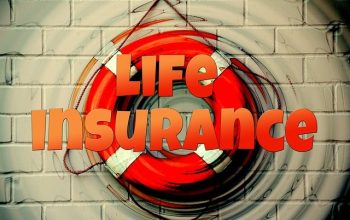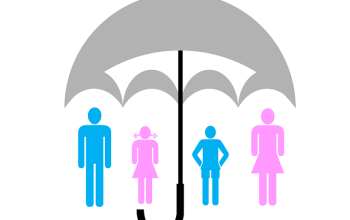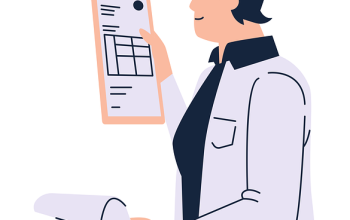businesses must prioritize obtaining comprehensive liability insurance to safeguard against financial losses from employee injuries, product liabilities, and third-party claims. Essential for all businesses, General Liability Insurance is particularly critical as it encompasses broad protection against bodily injury, property damage, and reputational harm caused to third parties. Professional Liability Insurance, or E&O insurance, is crucial for service providers to avoid personal liability for professional mistakes or oversights. Product Liability Insurance protects businesses involved in product manufacturing, distribution, or sale from claims related to defects or insufficient warnings. For small businesses, tailored Small Business Insurance packages that include these essential coverages are available, ensuring legal compliance and financial security. Additionally, Commercial Liability Insurance can be added for extra liability protection as a business grows or diversifies. Investing in a robust Business Liability Coverage, including Public Liability Insurance, is not just about risk management; it's a strategic move for long-term success, demonstrating a commitment to employee safety and public trust, and providing a financial buffer against litigation and liability claims.
When integrating employees into your business operations, it’s crucial to safeguard both your workforce and your enterprise. Employer’s Liability Insurance is a compulsory safety net for businesses with staff, offering critical protection against workplace injuries or illnesses. This article delves into the necessity of Employer’s Liability Insurance as part of a robust commercial liability insurance strategy. We explore how this coverage goes beyond the basic requirement by aligning with General Liability Insurance, Professional Liability Insurance, and other key business liability coverages. Understanding the distinctions and intersections between these policies is paramount for small businesses to large corporations alike, ensuring they remain financially secure in the face of employee claims. We’ll guide you through tailoring your liability insurance to fit your business size and specific needs, highlighting the importance of comprehensive coverage in managing risk effectively. Join us as we navigate the essentials of Employer’s Liability Insurance within the broader context of public and product liability concerns, ensuring that your business is prepared for any eventuality.
- Navigating Mandatory Employer’s Liability Insurance: A Critical Shield for Businesses with Staff
- Employer’s Liability vs. General, Professional, and Product Liability: Understanding Your Coverage Needs
- The Importance of Comprehensive Business Liability Coverage in Protecting Against Work-Related Claims
- Extending Protection Beyond the Workplace: How Employer’s Liability Insurance Intersects with Public and Product Liability Concerns
Navigating Mandatory Employer’s Liability Insurance: A Critical Shield for Businesses with Staff
Navigating the necessary provisions for Employer’s Liability Insurance is a critical step for businesses with staff, as it serves as a vital shield against financial vulnerabilities arising from employee work-related injuries or illnesses. This coverage, often incorporated within broader General Liability Insurance policies, extends protection to employers by covering the cost of compensation and legal fees associated with such claims. Understanding the nuances of this mandate is imperative for small businesses, as the absence of proper liability insurance can lead to significant financial strain due to unforeseen employee claims.
In addition to Employer’s Liability Insurance, businesses must also consider other forms of liability coverage to ensure comprehensive protection. Professional Liability Insurance safeguards against claims of negligence or harm due to professional advice or services rendered. Meanwhile, Product Liability Insurance specifically addresses the risks associated with products manufactured, sold, or distributed by a business. For those engaging in public activities or events, Public Liability Insurance is essential to mitigate risks of legal action resulting from third-party injuries or damages.
Moreover, Small Business Insurance packages often include Business Liability Coverage tailored to the specific needs and risks of small enterprises. These packages can be further customized with Commercial Liability Insurance to address broader liability concerns, ensuring that businesses are well-prepared for a variety of potential claims. By carefully evaluating and securing the appropriate forms of liability insurance, companies can safeguard their financial stability and operational continuity, ultimately contributing to their long-term success and risk management strategy.
Employer’s Liability vs. General, Professional, and Product Liability: Understanding Your Coverage Needs
Employer’s Liability Insurance is often confused with General Liability Insurance, but they serve distinct purposes within a business’s risk management framework. While Employer’s Liability Insurance is mandated for businesses with employees and covers work-related injuries or illnesses sustained by staff, General Liability Insurance offers broader protection against third-party claims. This includes bodily injury, property damage, and personal and advertising injury, which can occur in the course of running a business. For instance, if a customer slips and falls on your premises, General Liability Insurance would typically cover the associated medical costs and legal fees.
Beyond Employer’s and General Liability, businesses must also consider Professional Liability Insurance (Errors & Omissions), especially for service-oriented enterprises. This coverage is critical when a client alleges negligence, errors, or omissions in the services provided. It ensures that professionals are not personally liable for claims arising from their business activities. Additionally, Product Liability Insurance is essential for businesses that manufacture, distribute, or sell products. It protects against claims of product defects, lack of proper warning labels, or failure to adhere to industry standards, safeguarding your company’s finances if a product causes harm.
For small businesses, understanding the nuances between these liability coverages is crucial for comprehensive protection. Small Business Insurance packages often bundle some or all of these coverage types to cater to the diverse risks faced by different industries. Understanding your specific business needs is key to selecting the right mix of Commercial Liability Insurance. It’s not just about legal compliance; it’s about safeguarding your business’s future and maintaining its operational continuity in the face of unforeseen events. Ensuring that you have the appropriate Business Liability Coverage can mean the difference between a temporary setback and the irreparable damage to your company’s financial health and reputation.
The Importance of Comprehensive Business Liability Coverage in Protecting Against Work-Related Claims
In today’s litigious environment, comprehensive business liability coverage is paramount for protecting against work-related claims. General Liability Insurance serves as a foundational shield against third-party claims arising from bodily injury, property damage, or reputational harm. This type of coverage is crucial for small businesses, which often have limited resources to manage the financial impact of unforeseen legal actions. It ensures that business operations can continue even when faced with costly liability suits.
Beyond general liabilities, Professional Liability Insurance (Errors and Omissions) is specifically tailored for businesses offering professional advice or services. It protects against claims alleging negligence or mistakes in a professional capacity. For companies dealing with physical products, Product Liability Insurance safeguards against claims related to product defects or failure to provide adequate warnings about potential risks. Small Business Insurance packages often bundle these coverages along with Public Liability Insurance, which addresses liability arising from interactions with clients and the general public. Additionally, businesses engaging in the production or distribution of goods should consider Product Liability Insurance to guard against claims that their products caused harm or damage.
Entrepreneurs must also recognize the importance of Commercial Liability Insurance, which can be tailored to meet the unique risks inherent to their specific industry. This broad category includes coverage for various types of liability exposures and is adaptable as a business evolves or expands its operations. By securing robust Business Liability Coverage, companies not only protect their financial health but also demonstrate a commitment to safeguarding their employees and the public. This proactive approach to risk management can foster trust and stability within the marketplace, ultimately contributing to the long-term success of the business.
Extending Protection Beyond the Workplace: How Employer’s Liability Insurance Intersects with Public and Product Liability Concerns
Employer’s Liability Insurance extends beyond mere protection for workplace injuries, intersecting with broader liability concerns that encompass a business’s operations and products. This comprehensive coverage is not limited to accidents occurring within the confines of the company premises; it often includes provisions for public liability insurance as well. Public liability insurance safeguards businesses against claims arising from accidental damage or injury caused to members of the public, ensuring that even incidents beyond the workplace are managed with financial prudence. Furthermore, small businesses must consider the implications of product liability insurance, which offers protection when products cause harm after leaving the company’s control. This aspect is crucial as it addresses the risks associated with the entire lifecycle of a product, from design to disposal.
In addition to these, general liability insurance serves as an umbrella that can cover various exposure points not specifically addressed by Employer’s Liability Insurance. It often includes product liability coverage, which is particularly relevant for businesses involved in manufacturing or selling goods. Professional liability insurance, also known as errors and omissions (E&O) insurance, steps in to protect service-oriented companies from claims arising from professional negligence or misadvice. Businesses that interact with the public or handle products should consider comprehensive commercial liability insurance to ensure robust protection against a wide array of potential liabilities. This integrated approach to liability coverage not only safeguards employees but also the company’s reputation and financial health in an increasingly litigious environment.
In conclusion, businesses with employees must prioritize securing Employer’s Liability Insurance to fulfill their legal obligations and safeguard their financial health. This coverage is a cornerstone of a robust business liability insurance framework, which also encompasses General Liability, Professional Liability, and Product Liability Insurance. For small businesses in particular, understanding and integrating Business Liability Coverage is not just prudent risk management; it’s indispensable. Ensuring adequate Public Liability Insurance further extends the protective umbrella beyond the workplace, offering comprehensive protection against a myriad of potential claims. As such, embracing a holistic approach to liability insurance is essential for any business aiming to navigate the complexities of today’s market with confidence and security.



